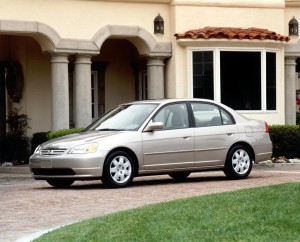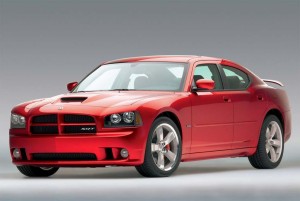Barely two weeks after a major airbag recall was announced by industry giant Toyota, three other Japanese manufacturers have taken similar steps that will impact nearly 3 million vehicles worldwide.
The latest recalls were announced by Honda, Nissan and Toyota, and aim to address faulty airbag systems supplied by Japanese partsmaker Takata Corp. An apparent manufacturing defect could cause the bags to improperly inflate, possibly blasting shrapnel into the passenger compartment.
Separately, Chrysler also is recalling some 2006 Dodge Chargers equipped with potentially faulty Takata airbag inflators sold in high-humidity areas. Nissan also will have a regional recall.
All told, about 10.5 million vehicles equipped with faulty Takata airbags have now been recalled, making it one of the five largest automotive safety-related issues ever. The issue appears to be the result of improper handling and processing, at factories in the U.S. and Mexico, of the explosive materials used to inflate airbags.
The National Highway Traffic Safety Administration and other safety agencies around the world recently had launched investigations into the airbag problems and it was expected that a number of other manufacturers would follow Toyota’s move.
(For more on Toyota’s expanded recall, Click Here.)
The largest of the recalls was announced by Honda which will involve 2.03 million vehicles, 1.02 million of them sold in the U.S., and another 669,000 sold in Japan. They were all manufactured between 2000 and 2005, according to the maker.
Honda had previously staged a recall for defective Takata airbags, a move that had involved 1 million vehicles. But like Toyota, it recently was advised by Takata that the faulty parts had been installed in additional vehicles.
(When airbags kill – why have there been so many airbag problems in recent years? Click Here to find out.)
Nissan, meanwhile, is recalling 755,000 vehicles assembled between 2001 and 2003. Mazda’s recall covers 160,000 vehicles produced from 2002 to 2004.
Chrysler’s recall will cover vehicles sold in certain high-humidity regions, such as Puerto Rico and Florida, because that can cause the inflators in affected vehicles to activate improperly in a crash. Chrysler is studying whether other vehicles besides the 2006 Charger will be impacted by the recall. Nissan also is staging an additional, regional recall.
Takata, one of the world’s largest producers of airbags – among many automotive components – has had a series of technical and legal problems in recent years.
The various airbag issues it has confirmed in recent years have been linked to a number of injuries and fatalities, including two deaths in 2009 that Honda confirmed last year when it announced its original airbag recall.
Toyota reported one injury and a fire related to its latest recall which covered 2.27 million vehicles – some of which had been improperly repaired during a service action in 2013.
Last year, Takata confirmed it had sold faulty airbags to not only Toyota, Nissan, Honda and Mazda, but also BMW and General Motors – all five of which had recalls to address the problem. It is unclear if either GM or BMW now might have to expand those earlier service actions.
(Data doesn’t support claims in $10 bil GM class-action lawsuit. Click Here for TheDetroitBureau.com’s investigative report.)
Takata has also been in trouble for corruption in its American operations, four executives last year pleading guilty to price-fixing in the sale of seatbelts used by automakers in the U.S. The three were sentenced to serve from 14 to 19 months while also agreeing to cooperate in an ongoing Department of Justice investigation into price-fixing in the automotive supplier industry.
Another former Takata sales executive was indicted on similar charges this month, part of a broader probe that has so far led to charges against 35 Japanese automotive supplier executives.
Takata itself agreed to pay a criminal fine of $71.3 million for price-fixing and bid-rigging last December. And it ousted its president last year, replacing him with a new, non-Japanese executive.
The partsmaker insists that the management shake-up was not related to the airbag problem. Nor have there been any indications that the safety issue was the result of corruption, rather than a manufacturing problem.
In a statement out of Japan, Takata CEO Shigehisa Takada and Chief Operating Officer Stefan Stocker said, “We will aim to further strengthen our quality control system and work united as a company to prevent problems from happening again.”



The airbag recall is a big issue. I guess the manufactures, Takata Corp will lose a lot of business because of this.
All suppliers should be held accountable for defective products. They deserve to lose business if they ship defective goods. The problem is the auto maker doesn’t usually discover the defective product until after the car is in consumer’s hands. then the real problems begin.
Perhaps the lowest cost bidder isn’t the BEST supplier to an auto maker?????